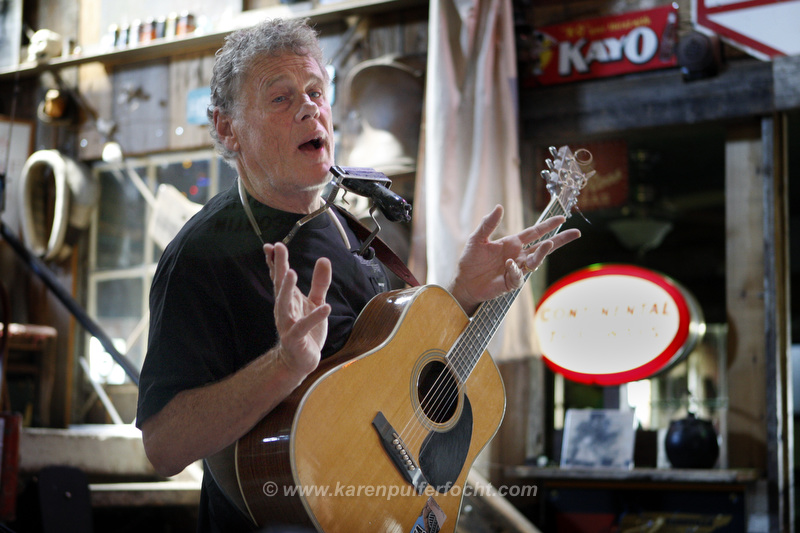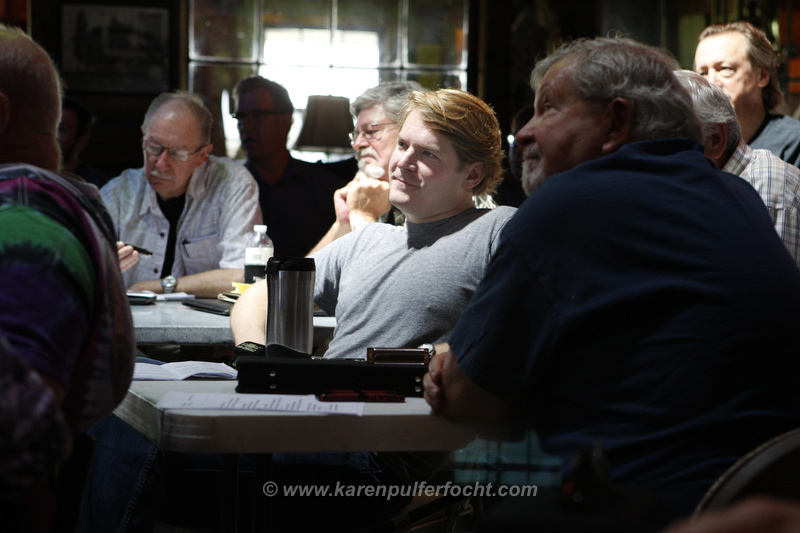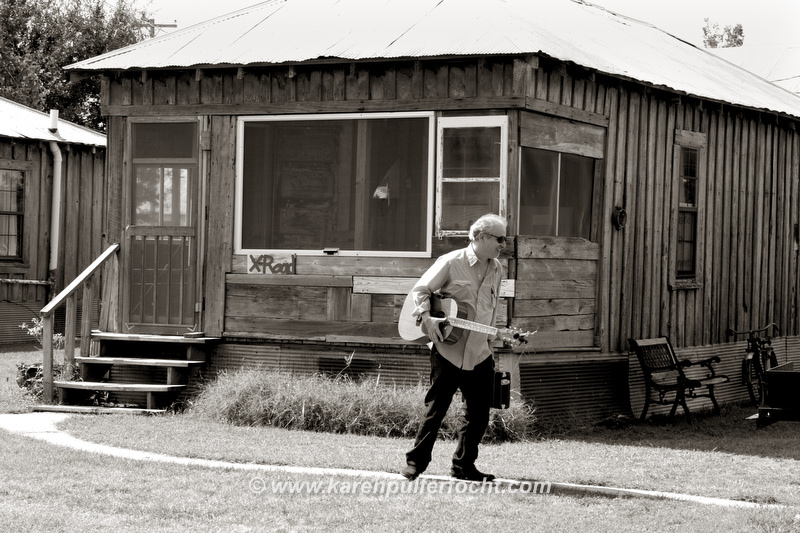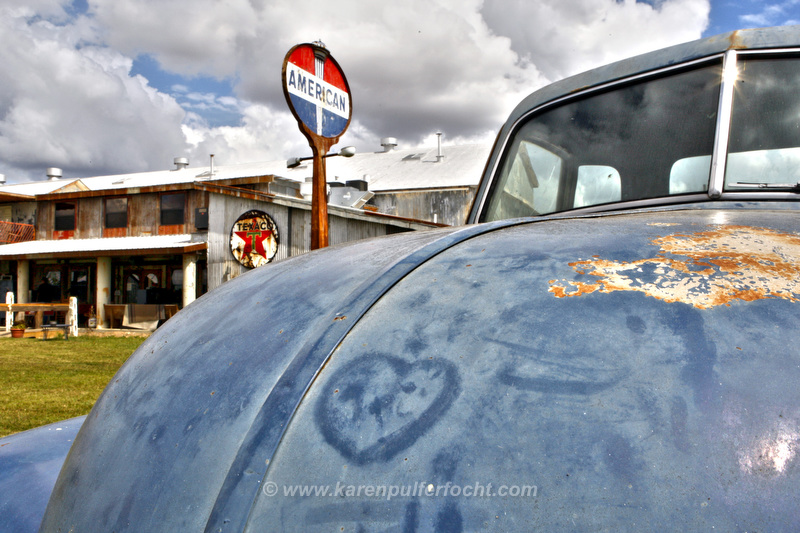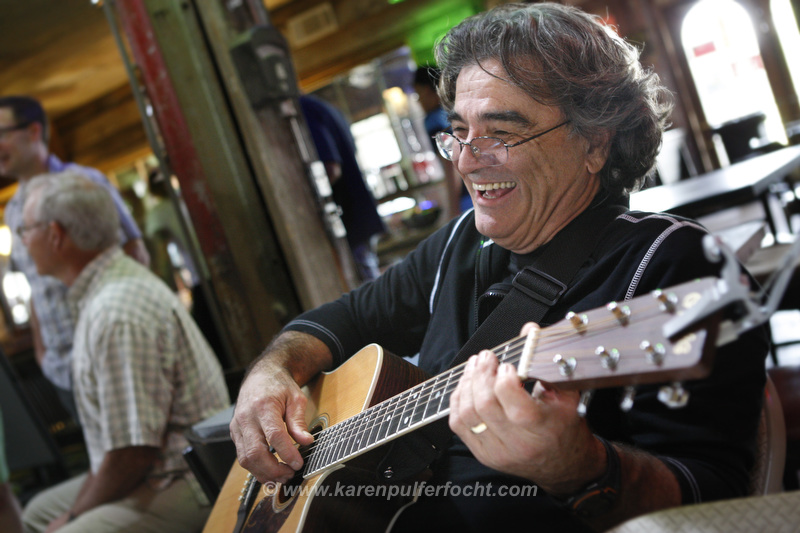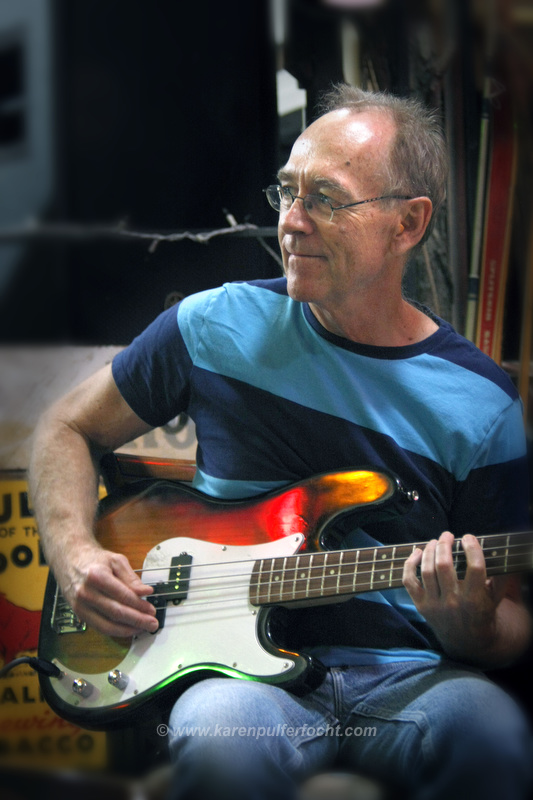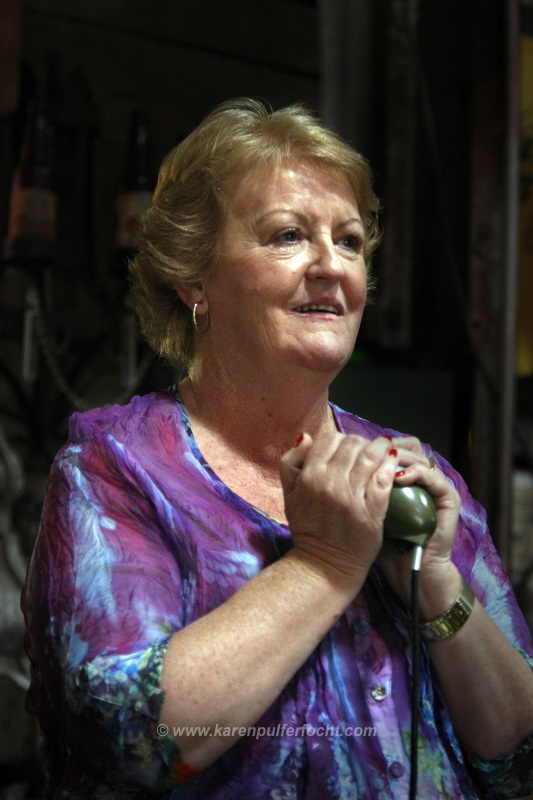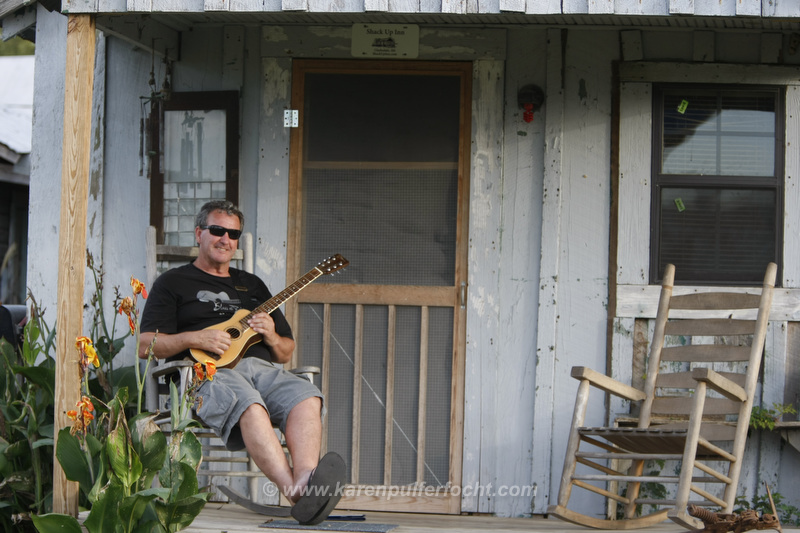2023 UPDATE- NOTE: THIS CAMP HAS BEEN TAKEN OVER BY THE JAM CAMP COACHES: YOU CAN STILL ATTEND THE CAMP-TO LEARN MORE FOLLOW THIS LINK FOR THE NEW HARMONICA EXPERIENCE- https://www.karenpulferfocht.com/blog/2022/8/3/the-harmonica-experience
http://www.commercialappeal.com/lifestyle/learning-the-blueshttp://www.commercialappeal.com/lifestyle/learning-the-blues
Harmonica enthusiasts gather several times per year to learn to play blues harmonica in Clarksdale, Mississippi with Jon Gindick.
Three times a year, people come from around the world to the Hopson Plantation in Clarksdale, Miss., to stay in sharecropper shacks and learn to play blues harmonica.
One of the harmonica pilgrims, Kate Wakeling, a cheery wife and mother, admits that her laundry piles up at home in Australia while she hones her skills, learning how to coax bent notes from her harp and keep a bluesy 12-bar beat.
"I am obsessed," she says of her quest to get down and dirty with the harmonica. She has traveled from Australia to Clarksdale three times in the past year with one thing in mind: Capturing the essence of the blues. "It makes me happy," she says. So when she sets foot in the Delta, she wipes the smile off her face, wraps her pink lips around her harmonica and pours herself into a jam at the Gindick Delta Harmonica Jam Camp.
At the camp, these blues wannabes trade creature comforts for a few days at the Shack Up Inn, where "it only leaks when it rains." "The Ritz it ain't," boasts owner Guy Malvezzi , a tall, thin man who describes himself as someone "who looks like they just fell off the turnip truck."
He says, "If it is room service you want, call The Peabody in Memphis."
Malvezzi is the visionary, who saw an opportunity in this dusty plantation after travelers frequently stopped by and asked if they could stay there. The majority of visitors who stay at the Shack Up are blues fans from around the world who can't get enough of the Mississippi blues experience. The Shack Up Inn stays booked most of the year, Malvezzi says.
Poor sharecroppers once "hollered" between cotton fields along the long, lonely, dusty roads surrounding this plantation. Using mules, they planted and harvested some 3,500 acres of cotton, while singing work songs. Cotton sprouted up on this hallowed ground, but so did the blues, out of the pain of those who worked the land.
On a recent morning, a humble group of musicians gathers in the Juke Joint Chapel at the inn to saturate themselves with the Southern experience. They settle in, learn blues riffs with authentic Mississippi Hill Country bands and drink sweet tea.
Founder and master teacher Jon Gindick leads each session, strumming a bouncy 12-bar blues, with his large hands on his guitar. Each person in the room improvises to the beat. As they come up to the microphone to play individually and on the spot, Gindick shouts, "Say something!" He tells them, "The real instrument is you and your imagination." He spends the days teaching them about phrasing and articulation within their music.
Clarksdale native Kris Card sets out meals, which consist of deep-fried okra, catfish, cornbread and barbecue. As the air becomes thick with the aroma of these classic Southern dishes, campers from around the world are inspired; they weave the gentle tones of their harmonicas together. While the melancholy notes linger throughout the room, so do the spirits of those players who brought this music to life, according to lore. It is fall and the cotton fields outside where this music was born are now in full bloom.
The grave of harmonica great Sonny Boy Williamson lies just up the road in the tiny town of Tutwiler, where Gindick, of Malibu, Calif., has set up a charity for needs in the community. Many of the last great Mississippi bluesmen are buried around here, including Pinetop Perkins, who died this year at the age of 97. Perkins once worked on the very plantation where the campers are learning their blues.
A group of people wearing cool hats, long beards, flowing dresses and scarves encourage one another as they each find their own place on the path to the blues. People with names like Hash Brown, Big Boy and Dixie lay down "awesome grooves" for the students to use as a backdrop for their newfound talent.
While the students prepare for their chance to go on stage at Ground Zero, the downtown Clarksdale blues club owned by actor Morgan Freeman, other guests staying at the inn wander in and out during the day, getting a glimpse of the musical activity.
Midweek, a truck driver puts lyrics to a song he had worked up in his head while driving. During a songwriting session and with the help of the group and coaches, he completes his song and by the end of the week performs it with a live band.
Lynda Stirling, an air traffic controller, came here from New Zealand because, she says, "I can't stay away. It's a pilgrimage." The blues, she says, "is the soundtrack of my life."
While camp is an avenue for aspiring musicians to fulfill their fantasies of performing, it is also a place to learn theory and technique. Established blues musicians spend each day offering their time and talent to help the students reach their next level.
It is a paid gig for people like blues artist and coach R.J. Mischo, who swaggers into the club from his shack, wearing a fedora. With the snap of his fingers, he commands the band to wait, listen for his beat and to start playing to his tune. The harmonica coaches can't resist the opportunity to jam with each other, show off their stuff, and then have "conversations" that consist only of musical notes. Even though no one has spoken a word, everyone understands what is being said. Music is a universal language.
Mischo says it is a nice alternative to the rigors of performing and being on the road. "I like the people, the location. It is like family now," he says.
For those looking for a quiet night, like Californian Scott Harris, sitting in the cool Mississippi country air on the porch of his shanty makes a perfect resting spot. The smell of four o'clocks permeates the grounds, kittens play at his feet, and the simple life wins.
For Wakeling and some of her "mates" who have traveled across the world looking for a good time? They are only 3 miles from the legendary blues crossroads, Highways 49 and 61, where Robert Johnson sold his soul to the devil. About 11 p.m., they decide to go carousing with the locals in downtown Clarksdale at Red's Lounge, a juke joint on the wrong side of town. At the time blues was born, no white person would have been found in this club, but now it has become the hot spot for the evening. A barber chair sits outside the door of the nightclub. A man stumbles out onto Sunflower Street and falls between cars, as his group leaves, just in time for these new guests to squeeze into the club.
The smoky room is wall-to-wall people, an even mix of black and white people. They dance separately, then together. Some guests sit back and watch quietly, while others join in, finding their groove. The dancers bump and grind their way through the thick crowd to get a drink. They begin to shut down the club for the evening when blues artist and coach Cheryl Arena is pulled to the stage. She has the crowd on their feet with her wild, whining harmonica riffs. With a giant smile on his face, the band's leader wraps his arms around Arena. As she catches her breath, he says, "You can't play like that without having soul." Then he passes out the ultimate blues compliment: "This girl has soul!"
After a long night out, campers are expected to be back in "the chapel" for instruction at 10 a.m. Usually Gindick starts with a lively tune, but this time he asks students to slow down and just breathe single notes through their instruments. The room becomes very serene and meditative, while more than 20 campers breathe the long gentle notes back and forth simultaneously and in unison.
For financial planner Edward Panfili of Port Orchard, Wash., this started out as a way to improve his health and lungs. But the harmonica has captivated him. He is moved to tears as he drifts away while playing a haunting ballad with coach T.J. Klay. The two play in the building where blues legend Pinetop Perkins once fixed tractors. As they finish, visibly touched by the experience, Panfili chokes out the words, "Thank you."
By Karen Pulfer Focht © 2011/ The Commercial Appeal
Gindick Delta Harmonica Jam Camp
What: Five-day jamming and learning vacation for diatonic harmonica players
Gindicks next camps are
March 24-28, 2015
May 26-30, 2015
January 20-24, 2015 (Ventura)


